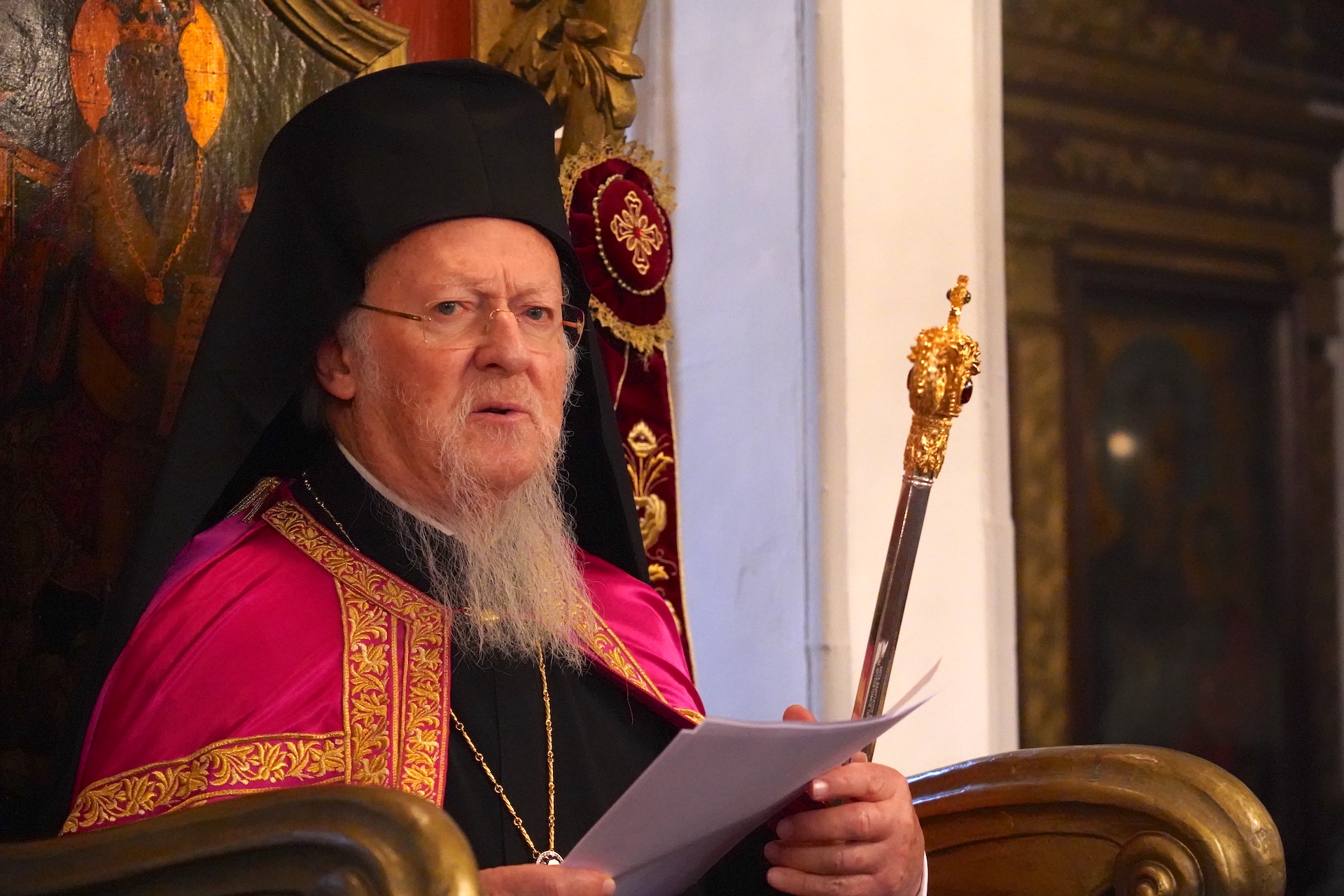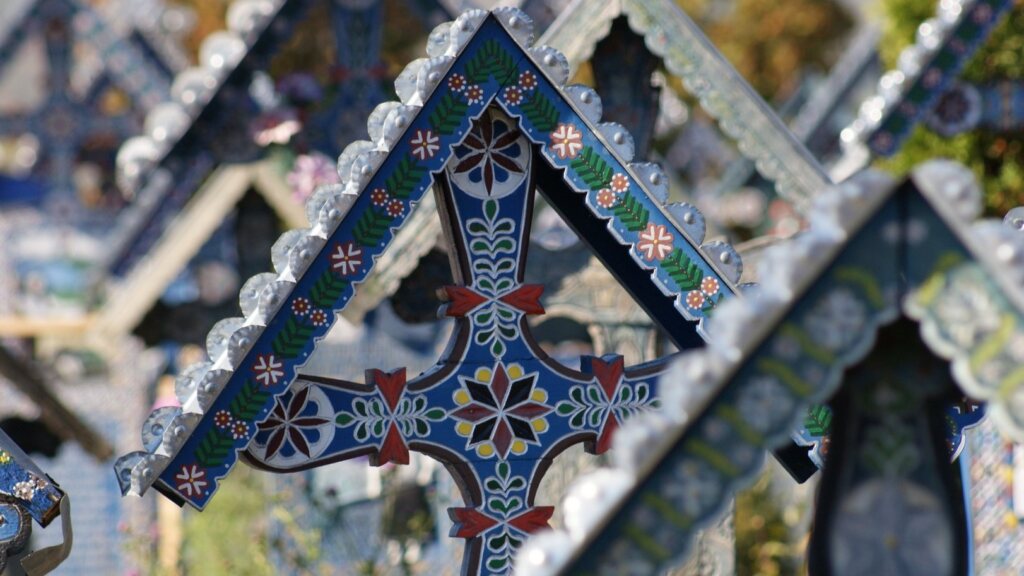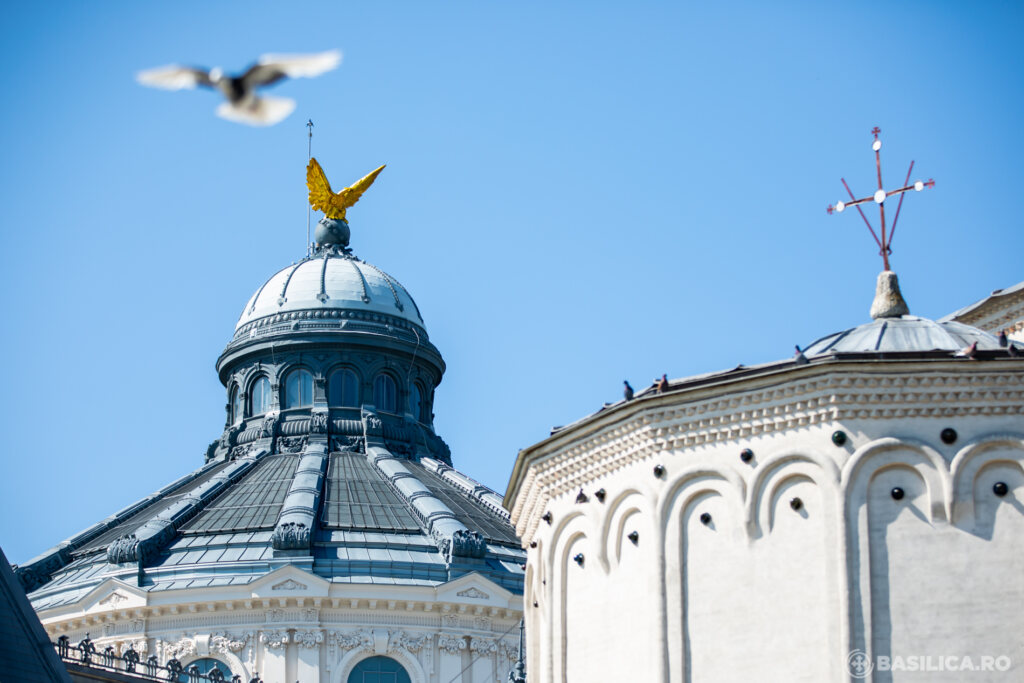„The struggle for human rights cannot ignore the fact that these rights are threatened by climate change, by the shortage of potable water, fertile soil and clean air, but also by environmental degradation in general,” Ecumenical Patriarch Bartholomew of Constantinople stressed in his Message on the occasion of the World Day of Prayer for the Care of Creation, celebrated at the beginning of the church year, September 1.
In his Message, various current topics are touched upon, including the war in Ukraine. Ecumenical Patriarch Bartholomew observed, “Every act of war is also a war against creation inasmuch as it is a grievous threat against the natural environment.”
The Patriarch of Constantinople listed some of the bad consequences of the war: “The pollution of the atmosphere, of water and earth by bombings, the risk of nuclear holocaust, the emission of dangerous radiation from nuclear plants producing electrical energy, the carcinogenic dust from exploding buildings, the destruction of forests and depletion of arable agricultural property.”
His Holiness used the Message at the beginning of the church year to renew the call to end the war and begin sincere dialogue.
Patriarch Bartholomew also mentioned the impact of the Ecumenical Patriarchate’s initiatives in the field of ecology and highlighted the response to the ecological crisis offered by Metropolitan John of Pergamon, whom he calls a pioneer in the field of ecological theology.
Message by Ecumenical Patriarch Bartholomew for the Beginning of the Ecclesiastical Year and the Solemn Day of Prayers for Natural Environment 2023
Bartholomew
By God’s mercy
Archbishop of Constantinople – New Rome and Ecumenical Patriarch
To the plenitude of the Church
Grace, peace and mercy from the Maker of all creation
Our Lord God and Saviour Jesus Christ
Most reverend brother Hierarchs and beloved children in the Lord,
With the grace of the Chief and Perfector of our faith, we are today entering a new ecclesiastical year and celebrating with psalms and hymns, for the thirty-fifth time, the Day of protection of the natural environment.
We rejoice in the repercussions of the ecological initiatives of the Ecumenical Patriarchate not only in the Christian world but also in other religions, in parliaments and among politicians, in the field of civil society, science, the ecological movements and the youth.
After all, the ecological crisis as a global challenge can only be addressed through international sensitization and mobilization.
We further express our satisfaction that people have definitively understood the immediate connection between ecological and social issues, and especially the fact that the destruction of the natural environment primarily affects the poor among us.
The combination of ecological and social activities constitutes the hope for our future because we can only have sustainable development and progress when we are simultaneously concerned about the integrity of creation and the protection of human dignity and human rights.
It is characteristic that today there is an emphasis on “ecological expansion” of human rights. Indeed, people speak of a “fourth generation” of rights—along with individual and political, social, cultural as well as solidarity rights—which refers to the securing of their environmental preconditions.
The struggle for human rights cannot ignore the fact that these rights are threatened by climate change, by the shortage of potable water, fertile soil and clean air, but also by “environmental degradation” in general. The consequences of the ecological crisis must be confronted, above all, on the level of human rights.
It is self-evident that these rights, in all their aspects and dimensions, comprise an undivided unity and that their protection is inseparable.
It is in this context that we must also include and appreciate the terrible effects created by the invasion of Russia in Ukraine, which is associated with horrible ecological devastation. Every act of war is also a war against creation inasmuch as it is a grievous threat against the natural environment.
The pollution of the atmosphere, of water and earth by bombings, the risk of nuclear holocaust, the emission of dangerous radiation from nuclear plants producing electrical energy, the carcinogenic dust from exploding buildings, the destruction of forests and depletion of arable agricultural property—all these bear witness to the fact that the people and ecosystem of Ukraine have undergone and continue to undergo incalculable losses.
We repeat emphatically: The war should cease at once, and sincere dialogue should commence.
Before all these challenges, the Holy Great Church of Christ continues its struggle for the integrity of creation, in full knowledge that its concern for the natural environment is not merely an added activity in its life but its essential expression and realization as an extension of the Holy Eucharist in every form and dimension of our good witness in the world.
This was also the precious legacy of the pioneer of ecological theology, the late Metropolitan John of Pergamon. In recognizing his immense contribution, we conclude this Patriarchal Message on the occasion of the Feast of the Indiction with what he writes on the Holy Eucharist as a wholistic response to the current ecological problems:
“In the Divine Liturgy, the natural and material world, along with all of the senses, participate in an inseparable unity. There is no antithesis between subject and objective reality, there is no stance of human mind’s conquest of the surrounding world. This world does not exist against, is not an object of man, but is assumed and communed. Holy Communion is not only our union with God and others, but also the assumption of food, the acceptance and appreciation of the natural environment, the incorporation and not merely consumption of matter. The sacredness that accompanies such an attitude, the divine shudder that pervades such a relationship, is the diametrical opposite of Technology and the answer to our ecological problem. The Holy Eucharist is, for this reason as well, the very best that Orthodoxy has to offer the contemporary world.”
We wish you a blessed ecclesiastical year, brothers and children in the Lord!
Fervent supplicant for all before God,
†Bartholomew of Constantinople
1 September 2023
Photography courtesy of Ecumenical Patriarchate / Nikos Papachristou
Follow us on Twitter: @BasilicaNews






